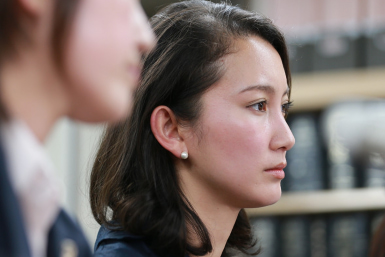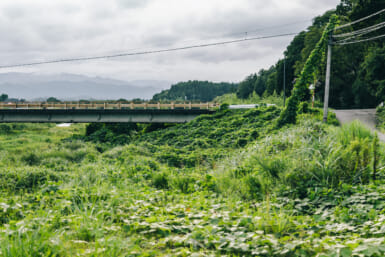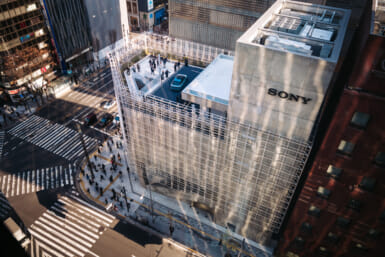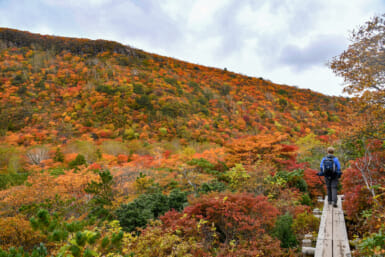For some tourists, all it takes to spoil a lovely day of sightseeing in Tokyo is a few centimeters of raised concrete. Most of us trod over steps, bumps and slopes without a second thought, but these literal roadblocks are constantly on the minds of travelers who rely on wheelchairs to help them navigate through Japan.
In a country where sightseeing locations are littered with stone staircases, long gravel pathways and uneven wooden floorboards, it’s easy to write off Japan as a location that wheelchair users should avoid. Not so fast, says Canadian-born Josh Grisdale, whose non-profit organization provides a wealth of accessible tourism information for visitors in wheelchairs, but also seeks to change the way that the public at large thinks about disabilities.
The Challenges of Using a Wheelchair in Japan
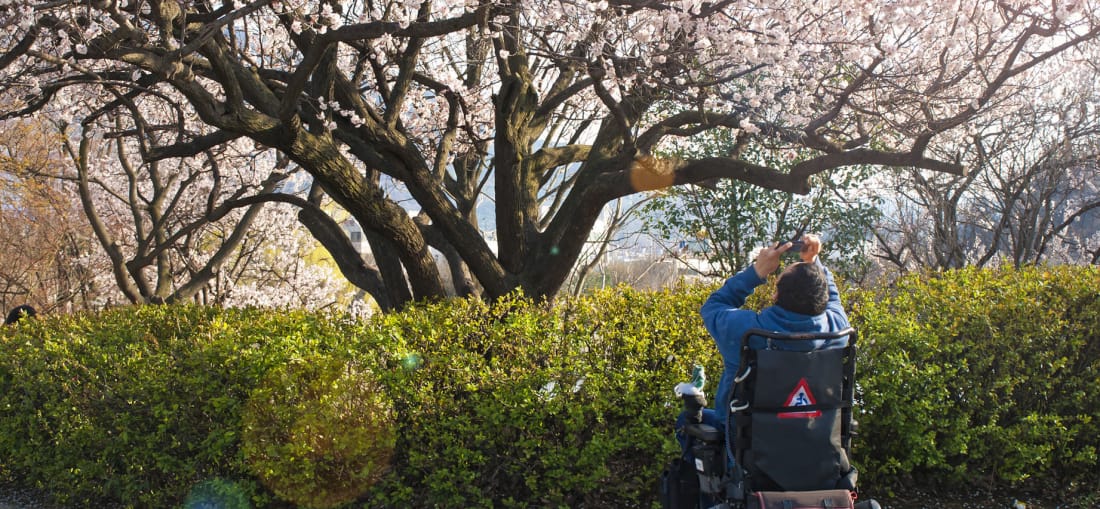
Josh has been living in Japan in 2007, facing all the challenges that come with life in a wheelchair in Japan. He shies away from the spotlight and often humbly downplays the important work he does for the disabled community, but he also has a persistent and stubborn streak. “I hate to hear ‘impossible’ when it comes to accessible travel,” he says. He likes adventure, but prefers to arrive prepared. Too many times he’s been foiled by a small step that wasn’t highlighted on a sightseeing brochure or a narrow entryway not pictured on a restaurant website. When Josh encounters these issues upon arrival, you can see the quiet outpouring of “I’m-not-angry-just-disappointed” on his face.

Instead of getting frustrated, Josh got creative. In 2015 he launched the Accessible Japan (accessible-japan.com) website to provide information to travellers with disabilities so they could be prepared before arrival. With detailed rundowns of sightseeing locations, hotel recommendations, and general travel advice, Accessible Japan has grown to become the premier resource for disabled travellers looking to visit Japan.
Josh himself has become something of a minor celebrity. He is regularly featured in the news media and is now recognized when he’s out and about in Tokyo. His fame has earned him spots on government committees for accessibility improvement, and local region tourism offices contact him for support and advice. When he rolls into a museum, the staff take notice and use the opportunity to ask for accessibility advice. “Yes, I’m the token foreign guy in a wheelchair,” he admits with a laugh, but he’s OK with being the poster boy for the disabled if it means that people are taking notice.
Spreading Awareness to Make Japan more Accessible
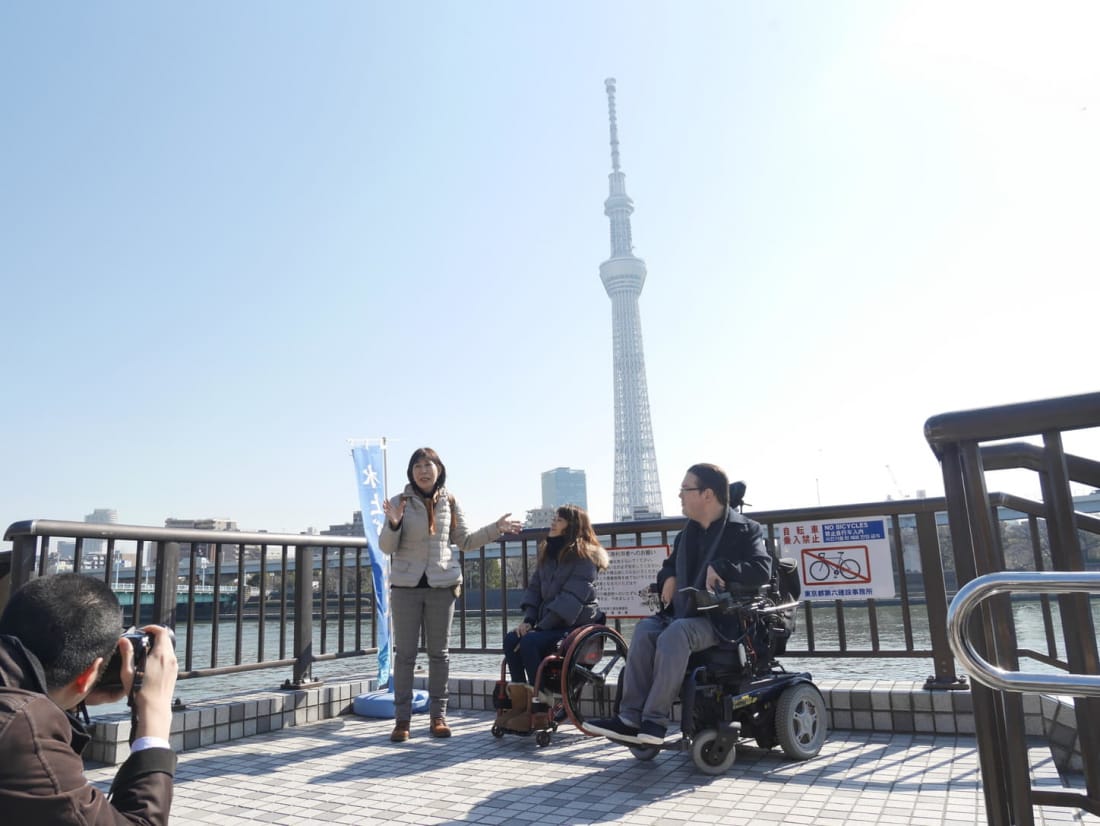
Taking notice, however, isn’t enough for Josh. Society has to actually start changing if the disabled are to be fully accepted. The Japanese government offers some basic accessible guidelines, but private businesses are not required by law to conform to any suggested regulations.
This lack of focus on bringing buildings up to accessible standards means Japan lags behind other developed nations. For example, approximately 5% of hotel rooms in America are wheelchair-friendly, but that number is only 0.4% in Japan. The government has issued a new target of 1% for accessible hotel rooms, but loopholes mean that smaller hotels and ryokan don’t have to follow the suggested government guidelines. Josh believes that the number of accessible rooms remains too low to accommodate the number of potential disabled travelers that may want to visit Japan.
“Gunkanjima in Nagasaki is now wheelchair accessible through a unique sling system”
But for every frustrating government statistic, there’s a success story that Josh can share – many of which he’s personally had a hand in. The famous “Battleship Island” of Gunkanjima in Nagasaki is now wheelchair accessible through a unique sling system that Josh was invited to test out. Fushimi Inari in Kyoto has installed a tastefully unobtrusive elevator leading to paved pathways flowing directly to the start of the famous torii gate tunnel. Even the sand dunes of Tottori are now traversable using a special device that looks more like the Mars Rover than a traditional wheelchair. Creative solutions like these validate Josh’s belief that accessibility should never be ruled out at any location and no traveler should settle for hearing that dreaded word: ‘impossible.’
Josh takes heart in knowing that things are changing in Japan. His greatest satisfaction comes from seeing Japan hosting the Paralympics – now set to be held in 2021. His face lights up when he describes how it makes him “ecstatic” to see Japanese society developing a new vision of the disabled by embracing the athletes. “Their visual exposure is positive, and the personal stories of the athletes as people with jobs and lives builds awareness,” he explains.
Disabled Rights are Human Rights
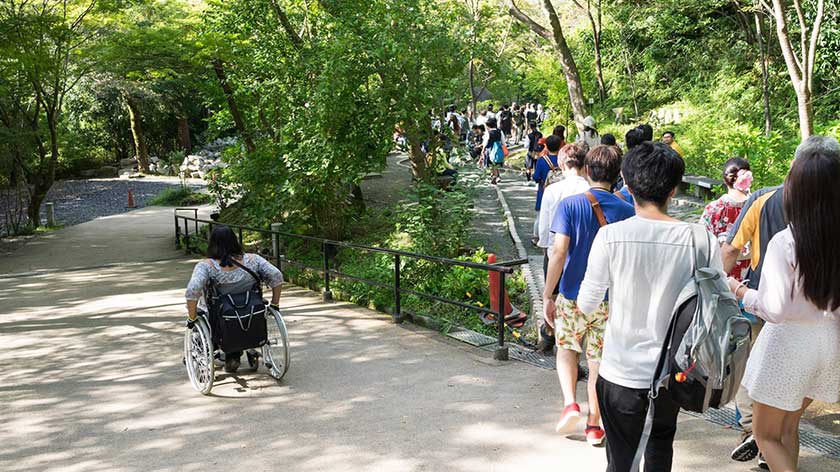
It’s this new positive characterization of the disabled that Josh hopes leads to changes in Japanese society, specifically in regards to access to education. Currently, Japanese with even minor physical disabilities are often limited to the same educational facilities as those with more serious mental disabilities. When Josh points out how paths to education and careers can be denied in Japan, it’s easy to see how disabled rights are human rights. This is a far cry from the initial premise of aiding travelers enjoy their time in Japan, but for Josh, it’s all connected and deeply personal. He hopes that one day the disabled won’t even be noticed in public, just as foreigners don’t get pointed out by locals as much as they used to before the tourism boom.
“Now is the time for the travel industry to embrace ‘tourism for all’”
What does the future of accessible travel in Japan look like? With the pandemic complicating things, it’s hard to say. However, Josh remains positive. “Now is the time for the travel industry to embrace ‘tourism for all’ and to re-evaluate who their clients will be going forward,” he offers. The pause in tourism should first and foremost be used to improve not only the accessible infrastructure at sightseeing locations and restaurants, but he also points out that that websites and brochures need to be amended as well. “Adding a wheelchair ramp is not always a simple task, but updating a website with proper accessible information is comparatively easy,” he reminds us. Letting a disabled traveler know what to expect at a location before they arrive – be it positive or negative – saves time and offers peace of mind.
Even during the pandemic, the user forum on the Accessible Japan site is just as busy as ever. Planning a trip around wheelchair travel is an intensive process that requires countless hours of research. Josh’s followers are already getting ready for their post-Covid trips, and he’s looking to continue expanding the information on his site during the pause in tourism.
The Future of Accessible Travel in Japan
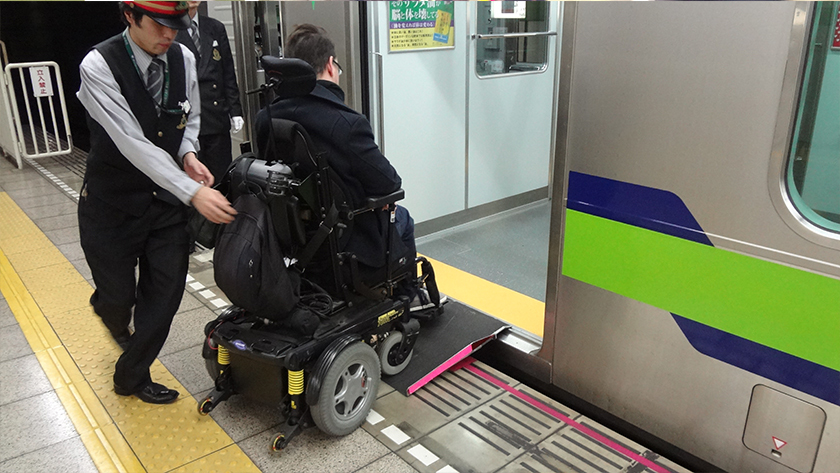
Another project for Accessible Japan is finding ways to get disabled visitors off the standard “golden route” of Japan travel (Tokyo, Hakone, Kyoto and Osaka). Through Josh’s lobbying efforts and local community action, more regional areas are opening up to accessible visitors.
Many communities are eager to make changes, but lack the knowledge of accessible safety standards and how to secure funding outside of rare government grants. Crowdfunding is still a new concept in Japan, but a recent success story in the Tokyo suburbs to renovate a number of small restaurants shows that it works. By connecting with local communities and tapping into the positivity generated by the Paralympics, Josh hopes the crowdfunding model can be replicated in other locations around Japan.
The next time you visit a sightseeing spot like Sensoji or Meiji Jingu, keep your eyes open for the numerous accessible renovations that have been installed in recent years. In many places, steps have been eliminated in favor of gentle slopes and gravel paths now have paved sections. You may even find an elevator cleverly hidden within temple architecture if you look carefully. It’s these slow but important changes that Josh promises will lead to a more inclusive and welcoming Japan.
Find the latest accessible travel information at accessible-japan.com




